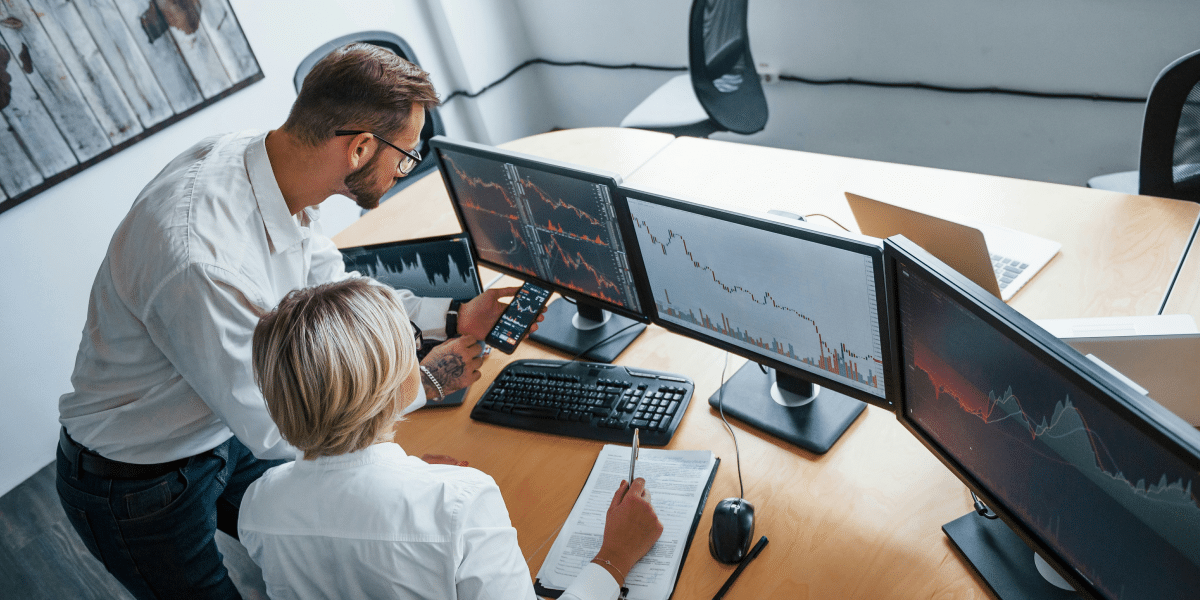The Ultimate Handbook for Help!
Managing finances as a sole trader can be challenging. Unlike large corporations, sole traders handle everything themselves, from client work to financial management. This can make accounting seem daunting, especially when there’s so much else to do.
However, staying on top of your finances is crucial for success. It helps you monitor cash flow, comply with tax regulations, and understand your business’s performance. This is where accounting software for sole traders comes in, making bookkeeping easier, tax preparation simpler, and saving you valuable time.
Common Accounting Challenges for Sole Traders
Sole traders face some tricky challenges when managing their finances. Keeping track of every receipt, calculating quarterly taxes, and staying on top of expenses can be tough. Even small mistakes can have big consequences:
- Time Management: With so many tasks to handle, it’s hard for sole traders to find time to keep their books updated.
- Complex Tax Rules: Staying compliant with tax laws is important but it’s not always easy to keep up with the ever-changing rules.
- Expense Tracking: Accurate records are a must for claiming tax deductions but many sole traders find this part of accounting a hassle.
These challenges make it clear that good accounting software can be a lifesaver. It really helps to simplify and automate financial tasks.
Types of Accounting Software for Sole Traders
1. Full-Featured Accounting Suites:
This type of accounting software for sole traders can handle all sorts of accounting tasks, like tracking expenses and generating financial reports. They’re perfect for sole traders who want a one-stop solution. Here are a couple of popular options:
- QuickBooks: This software is known for being easy to use. It helps to track income, create invoices and manage expenses. It’s a great pick if you’re looking for a reliable and very straightforward tool.
- Xero: Xero is loved by many sole traders for its simple dashboard and ability to connect with other apps. It’s a flexible choice if you want to customize your accounting setup.
2. Specialized Tools for Specific Tasks:
Some sole traders prefer tools that focus on specific tasks. These can be handling receipts or creating invoices. These options might not cover everything but are great at what they do:
- Receiptor AI: Receiptor AI offers automated receipt management, syncing real time with both your inbox and your accounting software, making it perfect to streamline bookkeeping for small businesses and sole traders. It’s a simple way to keep track of expenses without needing a full accounting package.
- Zoho Books: Zoho Books is known for its strong invoicing features. It integrates smoothly with payment gateways. This feature makes it a top choice for those who want hassle-free client billing.
Key Features to Look For
When choosing accounting software, sole traders should focus on features that match their needs. Here’s what to look for:
Expense Tracking: Good software makes it easy to track spending, sort expenses into categories, and create detailed reports.
Invoice Generation: A simple invoicing tool helps keep track of client payments. You don’t need to spend less chasing down money.
Tax Reporting Help: Tax time can be stressful, so people look for software with built-in tax tools. It can help estimate what you owe and get the right reports ready for submission.
Complementary Tools for Efficient Accounting
Sole traders can boost their accounting setup with extra tools that make life easier:
Receipt Management (ReceiptorAI): Digitize and organize receipts easily, saving time and preventing lost records. Receiptor AI offers a free one month retroactive extraction for all new users to experience the time saving difference!
Time Tracking Apps: If you charge clients by the hour, apps like Toggl or Clockify are super helpful. They keep a precise record of your work hours and make invoicing much easier for you.
Payment Processing Integrations: Connecting your accounting software with payment platforms like PayPal or Stripe means you can accept payments straight through your invoices. This really makes cash flow smoother.
Tips for Choosing the Right Accounting Setup
Finding the right accounting software means knowing what you need and thinking about a few key things:
- Assess your Specific Needs: Do you want a tool that does everything or just something for a specific task like invoicing? Pinpointing what’s most important to you will help you pick the right fit.
- Considering Scalability: As your business expands, you might need more features. Choose software that can grow with you, so you don’t outgrow it too soon.
- Evaluating Ease of Use : The best software should be easy to learn and use. Look for something with a simple design and good support, so you can minimize the learning curve
Summing Up
In 2025, a robust accounting approach is vital for sole trader success. The right software can streamline tasks, provide financial clarity, and ensure tax compliance. From comprehensive solutions like QuickBooks and Xero to specialized apps like ReceiptorAI for receipt management, there’s a solution for every sole trader.
Take the time to identify your needs and explore different options. This approach will help you find an accounting solution that aligns with your business’s unique requirements and keeps your finances in order.
Good Luck!
Published by: Martin De Juan

















